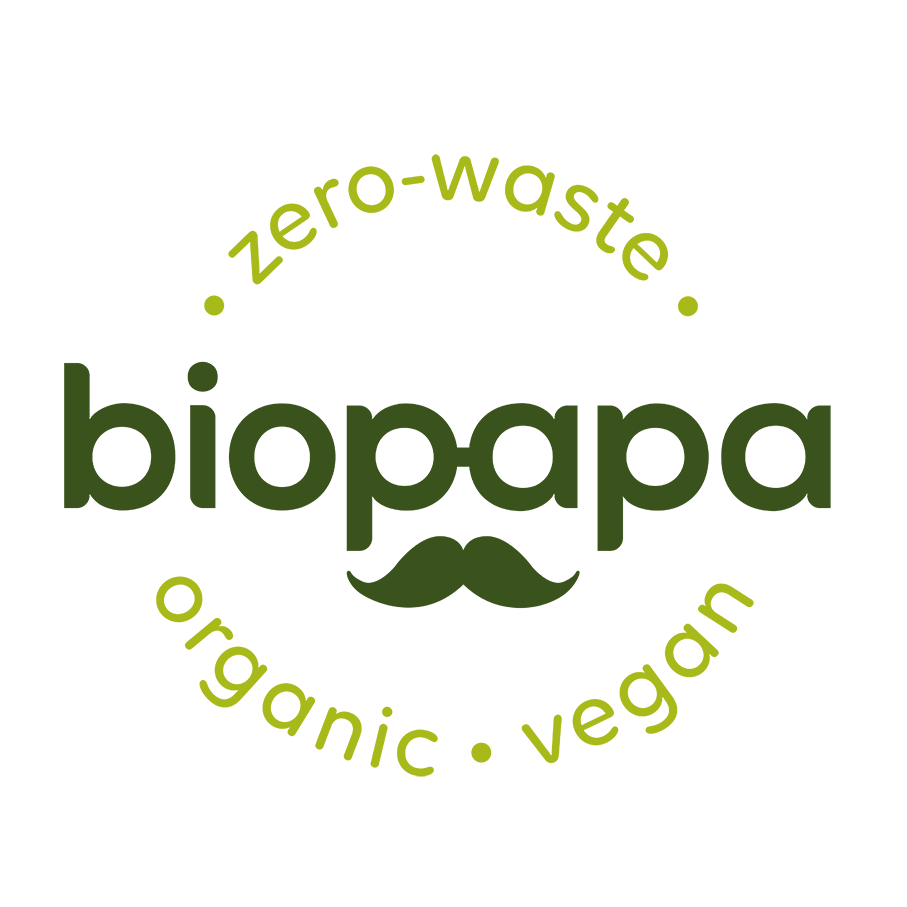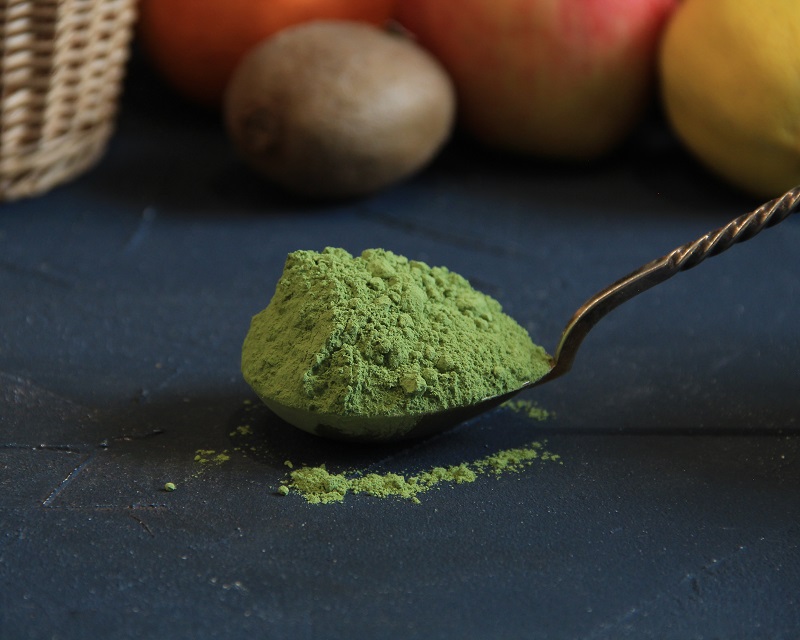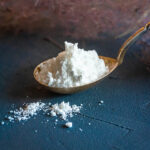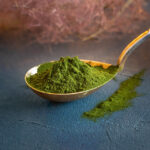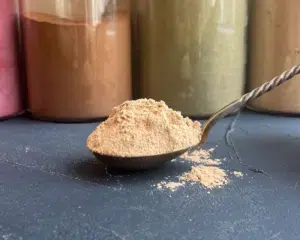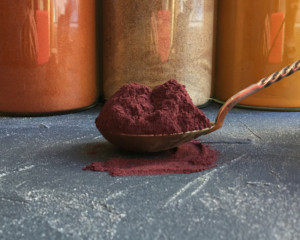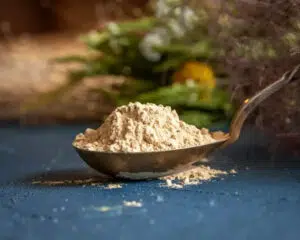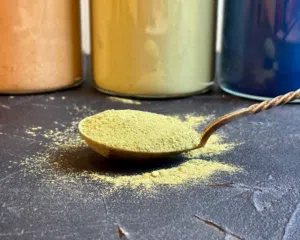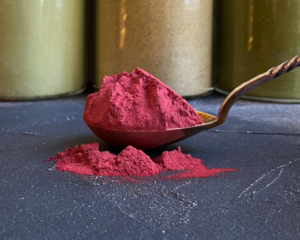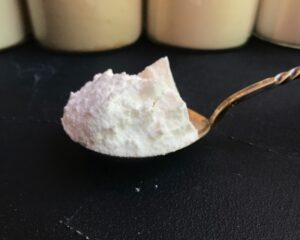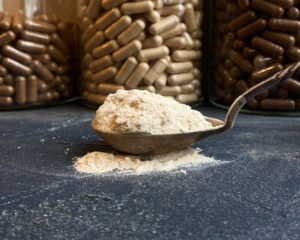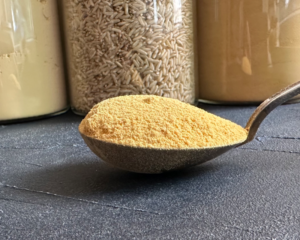Organic Ceremonial Matcha tea from Japan
From 9.05€

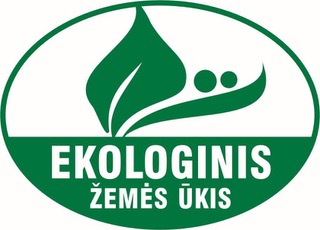
Japanese Ceremonial Matcha, a bright green tea powder, has been an integral part of Japanese culture for centuries. Its origins date back to the 12. century, where Zen Buddhist monks first introduced the art of matcha cultivation and preparation. Over time, the elaborate tea ceremony has become a symbol of deep harmony, respect and meaningfulness in the Japanese tradition.
Ceremonial Mahematcha tea from Japan is the highest quality green tea powder that has been used in traditional Japanese tea ceremonies for nearly a thousand years.
Japanese ceremonial matcha is made only from shade-grown tea leaves. Tea plants are grown carefully, protecting them from direct sunlight for several weeks before harvesting to increase chlorophyll production and give a richer green colour. After harvesting, the leaves are carefully steamed, dried and ground to obtain a fine velvety powder called matcha. It is this type of ceremonial matcha that meets EU environmental standards.
Matcha’s journey from ancient ceremonial rituals to modern healthy living has found its place as one of the most famous drinks in the world. This green tea powder continues to fascinate with its rich history, cultural significance and undeniable health benefits.
Ceremonial matcha has a very pleasant, aromatic and mild flavour, so it can be used as a tea, an energy drink or for a tea ceremony.
Because matcha is a powdered form of green tea, it retains all the nutrients found in the tea leaves, making it a powerful source of antioxidants, vitamins and minerals. It also contains caffeine, but this is completely different from the caffeine in coffee, its effect is slower.
Matcha is a popular choice for those seeking a balanced lifestyle. Many people appreciate matcha for its ability to help maintain focus and calmness while also conserving energy. In addition, the chlorophyll it contains can contribute to natural purification processes and remove harmful toxins.
Attention! In moderation, matcha is generally safe and well tolerated, but it contains caffeine, which can cause sensitivity in some people. Excessive intake can cause irritability, sleep or digestive problems. Pregnant or breastfeeding women and people sensitive to caffeine should be careful before adding matcha to their diet. In addition contains matcha (-)-epigallocatechin-3-gallate. The daily intake should contain less than 800 mg of (-)-epigallocatechin-3-gallate (2 g serving contains 41 mg).
Uses and preparation of ceremonial matcha: Japanese ceremonial matcha is made with a bamboo matcha whisk in a matcha bowl to honour the traditional tea ceremony.
Preparation: sieve 0.5-1 teaspoon matcha into a bowl, add 100 ml hot water (about 80 °C) and whisk in a zigzag motion until an emerald foam forms. You can then add more water if you want the matcha to be milder. A herbal drink and/or sweetener can be added to taste.
For best results, the matcha whisk should be soaked in hot water before use.
Matcha is growing in popularity as a culinary ingredient, and has recently been used in cocktails, lattes, desserts and savoury dishes, where it can stand out for its unique flavour and bright colour.
The Japanese ceremonial matcha is a symbol of ancient wisdom and modern prosperity. In addition to its cultural significance, this emerald liquor offers more than just great health benefits and pleasurable sensations. Whether partaking in a traditional tea ceremony or using matcha in culinary discoveries, adding this vibrant green powder to your routine promises a remarkable sensory journey for the body, mind and spirit.
Sources: https://matcha.com and https://ujido.com
NB! The information provided here should not be interpreted as a recommendation for treatment or other types of health problems. We recommend that you make personal health decisions after evaluating different sources of information.
100% Matcha (Camellia Sinensis) green organic tea
Energy value 1375 kJ / 329 kcal
Fats 4,7 g
- of which saturated fatty acids 1 g
- of which monounsaturated fatty acids 0,3 g
- of which polyunsaturated fatty acids 3,1 g
Carbohydrates 2,8 g
- of which sugars 2,3 g
Fibre 30 g
Protein 29 g
Salt 0 g
Vitamin A 1500 μg
Folic acid (B9) 100 μg
Iron 6,6 mg
Caffeine 2371 g (2 g serving 47 mg)
(-)-epigallocatechin-3-gallate (EGCG) 2070 mg (2 g serving 41 mg)
Store in a dry and cool place.
